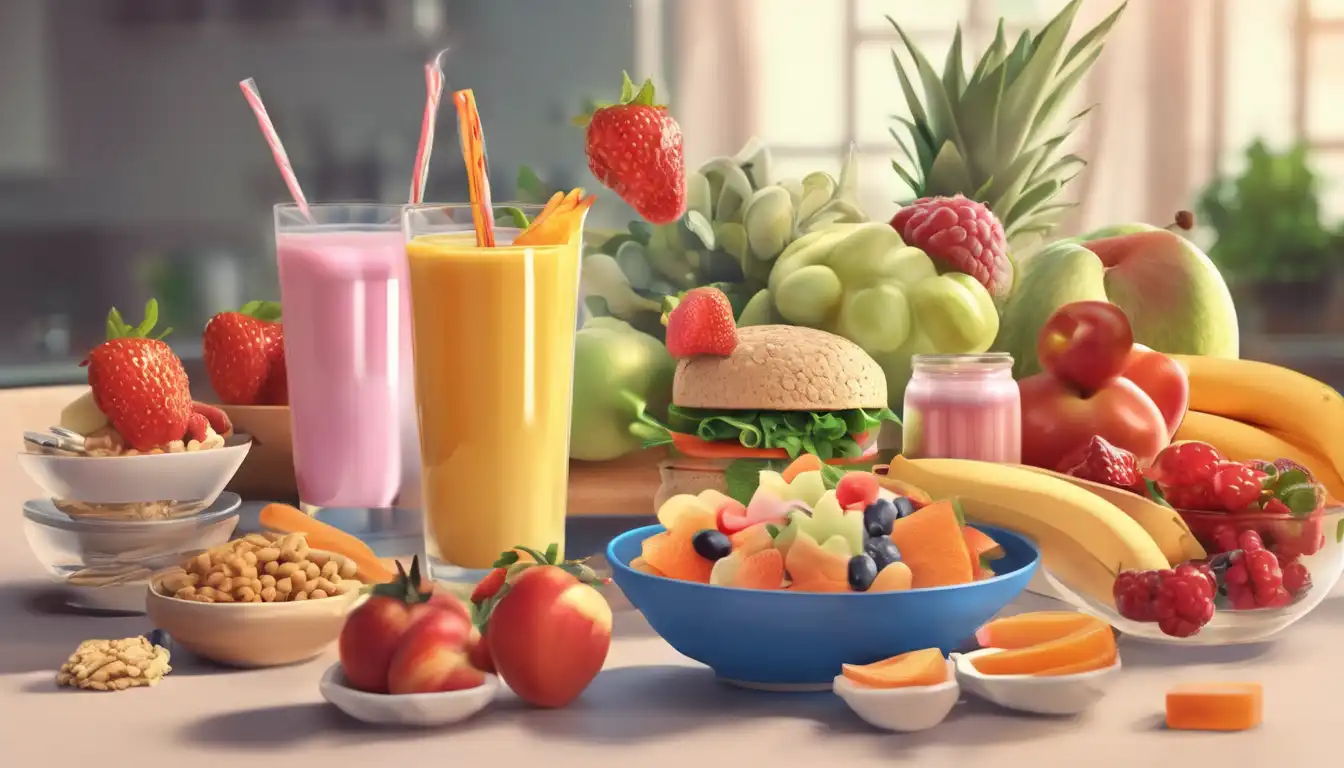Fuel Your Day: The Ultimate Guide to Energy-Boosting Snacks
Are you tired of that mid-afternoon slump that leaves you reaching for sugary treats or caffeine fixes? The secret to maintaining steady energy levels throughout the day lies in choosing the right snacks. Unlike processed foods that cause energy spikes and crashes, healthy snacks provide sustained fuel that keeps you productive and focused from morning to evening.
Why Healthy Snacks Matter for Energy
Healthy snacking isn't just about curbing hunger—it's about providing your body with the nutrients it needs to function optimally. When you choose nutrient-dense snacks, you're giving your body a steady supply of energy rather than the quick burst and subsequent crash that comes from sugary or processed options. The key is combining complex carbohydrates with protein and healthy fats to create a balanced snack that releases energy gradually.
Proper snacking can help stabilize blood sugar levels, prevent overeating at main meals, and provide essential vitamins and minerals that support overall energy production. By incorporating these smart snacking strategies into your daily routine, you'll notice improved concentration, better mood stability, and more consistent energy throughout your busy day.
Morning Energy Boosters
Start your day strong with these morning snack options that provide lasting energy without the crash:
- Greek Yogurt with Berries and Nuts: The combination of protein from Greek yogurt, antioxidants from berries, and healthy fats from nuts creates a perfect energy-sustaining trio. This snack provides approximately 15-20 grams of protein per serving, keeping you full and focused until lunch.
- Apple Slices with Almond Butter: The natural sugars in apples provide quick energy, while the healthy fats and protein in almond butter ensure sustained release. This classic combination is portable and requires no preparation, making it ideal for busy mornings.
- Hard-Boiled Eggs: Packed with high-quality protein and essential nutrients, hard-boiled eggs are one of the most convenient energy-boosting snacks. They're rich in choline, which supports brain function and energy metabolism.
Afternoon Power Snacks
Combat the afternoon slump with these revitalizing options that provide both mental and physical energy:
- Hummus with Vegetable Sticks: Chickpeas in hummus provide complex carbohydrates and protein, while the vegetables add fiber and essential nutrients. This snack helps maintain stable blood sugar levels when energy typically dips.
- Trail Mix with Nuts and Dried Fruit: Create your own mix with almonds, walnuts, pumpkin seeds, and a small amount of dried fruit. The combination provides healthy fats, protein, and natural sugars for balanced energy. Be mindful of portion sizes to avoid excess calories.
- Cottage Cheese with Pineapple: The protein in cottage cheese combined with the natural enzymes in pineapple creates an easily digestible snack that provides sustained energy. This combination also contains bromelain, which aids digestion and nutrient absorption.
Evening Energy Sustainers
For those late work hours or evening activities, choose snacks that provide energy without disrupting sleep:
- Edamame: These young soybeans are packed with protein, fiber, and complex carbohydrates. They're also rich in magnesium, which plays a crucial role in energy production and muscle function.
- Whole Grain Crackers with Avocado: The healthy fats in avocado combined with complex carbohydrates from whole grains provide steady energy release. Avocado is also rich in B vitamins, which are essential for converting food into energy.
- Roasted Chickpeas: Crispy, satisfying, and packed with protein and fiber, roasted chickpeas make an excellent evening snack. Season them with your favorite spices for added flavor without empty calories.
Smart Snacking Strategies
Timing and portion control are just as important as food choices when it comes to energy-boosting snacks. Aim to snack about 2-3 hours after main meals to maintain steady blood sugar levels. Keep portions reasonable—most snacks should be between 150-250 calories depending on your activity level and nutritional needs.
Preparation is key to successful healthy snacking. Take time on weekends to wash and chop vegetables, portion out nuts and seeds, and prepare any make-ahead snacks. Having healthy options readily available makes it easier to resist less nutritious choices when hunger strikes.
Hydration and Energy
Don't forget that proper hydration is essential for maintaining energy levels. Sometimes what we perceive as hunger is actually thirst. Keep a water bottle handy and consider incorporating hydrating foods like cucumber, watermelon, or oranges into your snacking routine. Herbal teas like peppermint or ginger can also provide a gentle energy boost without caffeine.
Special Considerations
For those with specific dietary needs or preferences, there are plenty of energy-boosting options available. Vegan alternatives include chia seed pudding made with plant-based milk, roasted edamame, or nut-based energy balls. Those following gluten-free diets can enjoy rice cakes with nut butter, fresh fruit with cheese, or veggie sticks with guacamole.
Remember that individual energy needs vary based on activity level, metabolism, and overall health. Pay attention to how different foods make you feel and adjust your snacking choices accordingly. The goal is to find what works best for your body and lifestyle.
Conclusion: Make Energy-Boosting Snacking a Habit
Incorporating healthy, energy-boosting snacks into your daily routine is one of the simplest yet most effective ways to maintain vitality throughout the day. By choosing whole foods that combine protein, healthy fats, and complex carbohydrates, you'll provide your body with the sustained energy it needs to perform at its best.
Start by trying one or two of these snack ideas each week and notice how they impact your energy levels. With consistent practice, healthy snacking will become second nature, and you'll enjoy the benefits of steady energy, improved focus, and better overall health. For more nutrition tips and healthy eating strategies, explore our other articles on balanced eating and meal planning.
